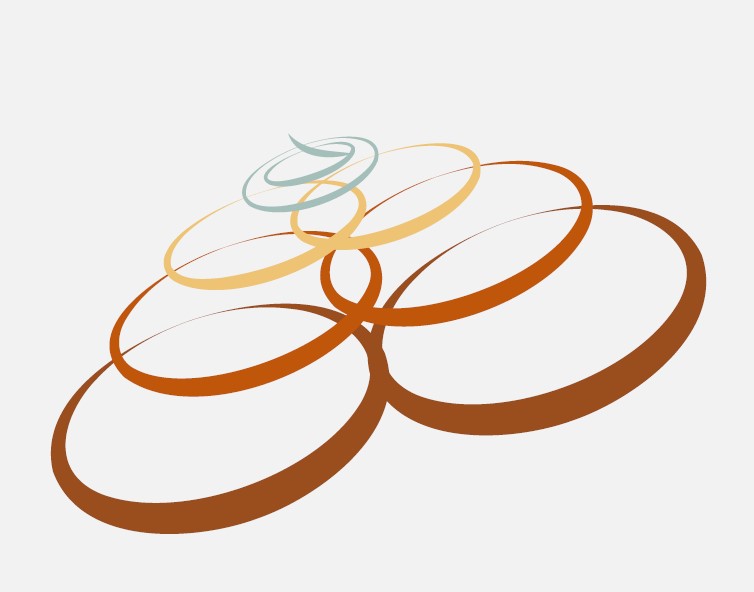
Deep within the human spirit lies a tapestry woven with motivations, anxieties, and desires. These threads, unseen yet potent, shape our every thought, feeling, and action.
Enneagram therapy, a practice steeped in wisdom, delves into this intricate realm, offering a map to navigate the labyrinth of the self.
Is Enneagram therapy merely a passing fancy, or a path to profound transformation?
Unlike traditional diagnostic tools, Enneagram therapy transcends mere labeling. It unveils nine distinct personality types, each with a unique essence, core fears, and defense mechanisms.
This framework, akin to an ancient map, illuminates the hidden scripts that play out on the stage of our lives.
What is Enneagram Therapy?
Enneagram therapy goes beyond labeling.
It unveils the essence of each personality type. Imagine a map of the psyche, revealing nine distinct landscapes, each inhabited by a unique archetype.
Through this framework, we gain a deeper understanding of our core motivations, anxieties, and defense mechanisms. By identifying our core Enneagram type, we begin to see the patterns that have shaped our existence.
Should Therapists Use Enneagram?
Absolutely.
Enneagram therapy offers a powerful lens for therapists to see into the intricate world of their clients. It’s not a replacement for traditional therapy techniques, but rather a complementary tool that provides a deeper understanding of a client’s motivations, anxieties, and interpersonal dynamics.
Imagine a therapist encountering a client who wrestles with intense perfectionism and a crippling fear of failure. These characteristics might point towards Enneagram 1 (the Reformer).
Armed with this knowledge, the therapist can tailor their approach in several ways:
- Unveiling the “Why” Behind Behaviors: The therapist can help the client explore the underlying reasons behind their perfectionism. Is it a deep desire for justice and a fear of wrongdoing (core motivations of the Reformer)? By understanding these core needs, the therapist can guide the client towards healthier ways to express them.
- Challenging Defense Mechanisms: Perfectionism can be a defense mechanism used to shield against feelings of inadequacy. The therapist can help the client identify and challenge this defense, fostering self-compassion and acceptance.
- Moving Beyond the Label: It’s crucial to remember that the Enneagram is not a rigid box. The therapist can use the framework as a springboard for deeper exploration, not a definitive label. Each client is a unique blend of traits, and the therapist will consider this individuality while utilizing the Enneagram insights.
Enneagram therapy can also be beneficial for understanding a client’s interpersonal dynamics. For example, a client who identifies as an Enneagram 8 (the Challenger) might struggle with trusting others and asserting their needs in relationships.
The therapist can use the Enneagram framework to explore these challenges and help the client build healthier communication patterns.
Overall, Enneagram therapy equips therapists with a valuable tool to create a more personalized and effective treatment plan for their clients.
What is the Enneagram 5 in Therapy?
The Enneagram 5, the Investigator, presents a fascinating paradox in the therapeutic setting. Often described as the quintessential “lone scholar,” 5s possess a thirst for knowledge that rivals their desire for solitude.
This independent nature can pose a unique challenge for therapists, as 5s might be hesitant to open up about their vulnerabilities.
Understanding the 5’s Core Fear: Feeling Incompetent or Overwhelmed
The key to unlocking the Investigator’s potential for growth in therapy lies in understanding their core fear: the fear of being incompetent or overwhelmed. This fear often manifests in a preference for intellectual pursuits over emotional connection.
5s might dissect every intervention a therapist offers, analyzing its logic and effectiveness before truly engaging with it.
Creating a Safe Haven for Exploration
Enneagram therapy can be a powerful tool for 5s precisely because it acknowledges their unique way of being. By creating a safe haven for exploration – a space free from judgment and pressure – therapists can help 5s feel comfortable venturing beyond their analytical minds and into the realm of emotions.
Bridging the Gap Between Intellect and Emotion
One of the most transformative aspects of Enneagram therapy for 5s is the opportunity to bridge the gap between their impressive intellect and their often-suppressed emotional world. Therapists can achieve this by:
- Validating the 5’s Need for Knowledge: Acknowledge the value of the 5’s analytical mind. Encourage them to use their intellectual prowess to explore their own emotions and motivations.
- Providing a Structured Framework: 5s often thrive on structure and systems. Therapists can utilize the Enneagram framework to provide a roadmap for their emotional exploration.
- Focusing on Growth, Not Pathology: Shift the focus from fixing “what’s wrong” with the 5’s preference for solitude to exploring the potential for growth and connection.
Fostering a Sense of Belonging
Ultimately, Enneagram therapy can help 5s overcome their fear of being overwhelmed and foster a sense of belonging. By understanding their core motivations and defense mechanisms, 5s can learn to build meaningful connections with others, realizing that true knowledge extends beyond the realm of the intellect and into the richness of human experience.
Do Psychiatrists Use Enneagram?
While Enneagram therapy is gaining traction in psychotherapy circles, psychiatry, which focuses on diagnosing and treating mental health disorders, has been slower to embrace it. The Enneagram is not a diagnostic tool recognized by the DSM-5, the standard diagnostic manual for mental health professionals.
However, some forward-thinking psychiatrists are finding the Enneagram a valuable tool for understanding their patients.
By pinpointing core fears and motivations, they can tailor their treatment plans and medication strategies with a deeper wisdom.
Enneagram therapy offers a profound path for self-discovery and personal growth. It’s not a magic bullet, but rather a map, a compass, and a mirror that reflects the complexities of the self. It is a journey of wisdom, inviting us to explore the hidden landscapes within and embrace the richness of our unique nature.
In Summary
Enneagram therapy offers a captivating journey of self-discovery, venturing beyond mere labels. It unveils the hidden landscapes within our psyche, each inhabited by a unique archetype with its own motivations, anxieties, and defense mechanisms.
By identifying our core Enneagram type, we gain a deeper understanding of the “why” behind our behaviors – the driving forces that have shaped our lives.
For therapists, the Enneagram serves as a powerful lens, illuminating a client’s inner world. It’s not a crystal ball, but rather a compass, guiding them towards a more personalized and effective treatment approach.
Whether you’re embarking on this journey yourself or seeking a deeper understanding of those around you, Enneagram therapy offers a profound path for personal growth and transformation.
It’s an invitation to embrace the complexities of the self, celebrate our unique nature, and navigate the labyrinth of life with greater clarity and compassion.

Q&A on Enneagram Therapy
A deep dive, easy to read, review of
Unveiling the Self: A Wisdom Journey Through Enneagram Therapy
What is Enneagram Therapy?
Enneagram Therapy is a dynamic approach to psychotherapy and personal development that leverages the Enneagram system—a powerful and intricate model of human personality comprising nine interconnected personality types. This therapeutic technique integrates Enneagram insights to facilitate deep self-awareness, uncover core motivations, and address emotional, cognitive, and behavioral patterns. Enneagram Therapy is utilized to enhance personal growth, improve relationships, and support mental health, tailoring interventions to the unique Enneagram type of each individual.
What do psychologists think of Enneagram?
Psychologists have varied perspectives on the Enneagram, with many appreciating its depth and the nuanced understanding of personality it provides. They recognize the Enneagram’s potential in psychotherapy for fostering self-awareness, emotional intelligence, and personal growth. However, some psychologists call for more empirical research to substantiate its efficacy and validity further. Overall, the Enneagram is regarded as a valuable tool in the psychology community for its insight into human behavior and motivation, especially when integrated with evidence-based therapeutic approaches.
Which Enneagram makes the best therapist?
While any Enneagram type can become an effective therapist, types Two (The Helper), Four (The Individualist), and Nine (The Peacemaker) are often considered particularly well-suited for the therapy profession. Twos, with their innate empathy and desire to support others, can create a warm and caring therapeutic environment. Fours, with their deep emotional insights and acceptance of complex feelings, can offer profound empathy and understanding. Nines, known for their peacekeeping and mediating skills, can provide a non-judgmental and calming presence. Ultimately, the best therapists are those who, regardless of their Enneagram type, pursue self-awareness, empathy, and continuous professional development.
Do therapists know about Enneagram?
Yes, many therapists are knowledgeable about the Enneagram and integrate it into their practice to enhance therapeutic outcomes. The Enneagram’s detailed personality framework offers therapists a comprehensive tool for understanding clients’ behaviors, motivations, and emotional patterns. By incorporating Enneagram Therapy techniques, therapists can tailor their approaches to suit the specific needs and personality types of their clients, fostering deeper self-understanding and promoting effective change. The growing interest in the Enneagram among mental health professionals highlights its value as a complementary tool in therapy.
